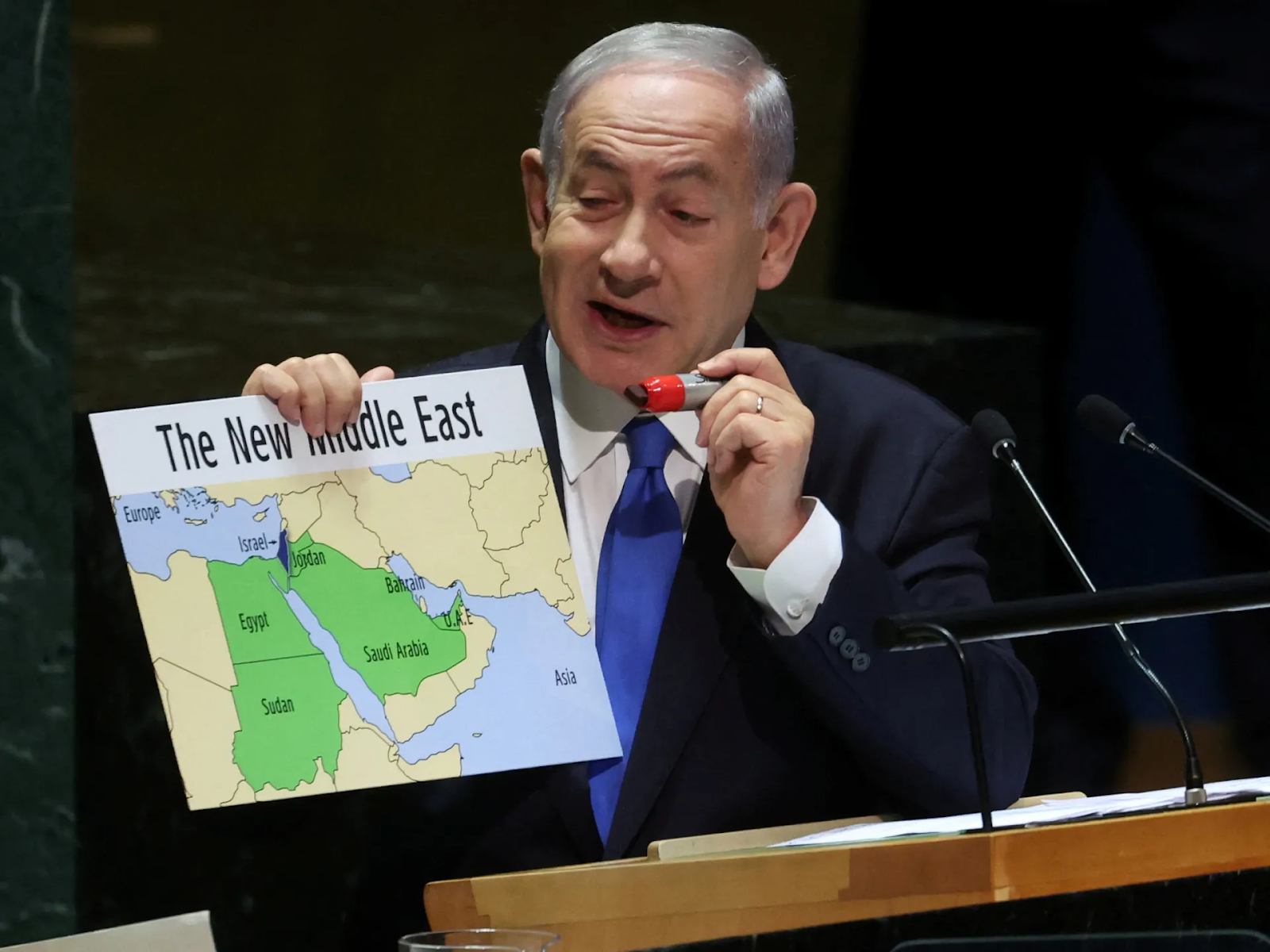Unveiling Diplomatic Shifts: Understanding Why Arab Nations Recognize Israel
In recent years, a fascinating geopolitical transformation has been underway, particularly in the Middle East, where countries like Egypt, Saudi Arabia, Jordan, and other Arab states have chosen to recognize Israel. This seismic shift in diplomatic relations has left many intrigued and curious about the motivations behind such decisions. Let's delve into the complexities of this geopolitical puzzle and uncover the key factors driving these nations to acknowledge and establish ties with Israel.
Historical Context: Tracing the Roots of Recognition
To comprehend the present, we must first explore the past. This section delves into the historical events and political dynamics that set the stage for the recognition of Israel by Arab nations. From the aftermath of significant wars to diplomatic initiatives, understanding history is crucial in decoding the motivations behind these diplomatic breakthroughs.
Economic Allure: The Power of Regional Cooperation
Beyond politics, a pragmatic approach often guides international relations. This section explores the economic incentives that drive countries to recognize Israel. From shared technological advancements to the prospect of enhanced trade, economic interests play a pivotal role in fostering diplomatic ties. Unveiling the economic alliances that contribute to the rapprochement between these nations adds a layer of depth to the discussion.
Shifting Alliances: Navigating the Complex Web of Geopolitics
The geopolitical landscape is ever-changing, marked by alliances that may seem improbable at first glance. This section delves into the intricate web of geopolitical dynamics, shedding light on the alliances and common adversaries that have led to Arab nations recognizing Israel. Understanding how regional and global power dynamics influence diplomatic decisions provides a comprehensive view of the motivations behind these historic shifts.
Cultural and Social Dynamics: Bridging Gaps and Fostering Understanding
Beyond the political and economic realms, cultural and social factors play a vital role in shaping international relations. This section explores how shared cultural elements, historical connections, and a desire for regional stability contribute to the decision of Arab nations to recognize Israel. Fostering a deeper understanding of the people behind the policies adds a human touch to the geopolitical narrative.
The Role of International Mediation: Facilitating Dialogue and Understanding
International players often serve as mediators in diplomatic breakthroughs. This section analyzes the role of key mediators, both within the region and globally, in facilitating dialogue and understanding between Arab nations and Israel. From peace accords to diplomatic initiatives, uncovering the role of mediation provides insights into the intricate negotiations that pave the way for recognition.
In conclusion, the recognition of Israel by countries like Egypt, Saudi Arabia, Jordan, and other Arab states is a multifaceted phenomenon influenced by historical, economic, geopolitical, cultural, and diplomatic factors. As we navigate through the intricacies of this diplomatic evolution, it becomes evident that the motivations are as diverse as the nations involved. The willingness to forge new alliances and seek common ground underscores a shared vision for regional stability and progress.
To explore more in-depth insights into the fascinating world of diplomatic transformations and geopolitical shifts, stay tuned for our upcoming articles. Your journey through the complex tapestry of international relations has only just begun.
Discover more thought-provoking content and support our commitment to insightful narratives by buying us a coffee at [BuyMeACoffee]
The recognition of Israel by certain Arab states, including Egypt and Jordan, has evolved over time and can be attributed to various political, strategic, and economic considerations. Here are some key factors:
1. **Peace Treaties and Diplomacy:**
**Egypt:** The Camp David Accords in 1978 paved the way for Egypt to become the first Arab country to officially recognize Israel. The accords, brokered by the United States, led to a peace treaty between Egypt and Israel in 1979. In return for recognizing Israel, Egypt regained control of the Sinai Peninsula, which Israel had occupied since the Six-Day War in 1967.
**Jordan:** The peace treaty between Jordan and Israel was signed in 1994. The negotiations, facilitated by the United States, focused on resolving territorial disputes and establishing diplomatic relations. The treaty addressed issues such as water sharing and security cooperation.
2. **Regional Security Concerns:**
**Common Threats:** Shared security concerns, including the rise of extremist groups and the desire to counterbalance regional adversaries, have led some Arab states to engage in pragmatic alliances with Israel. The perception of a common threat, such as Iran's influence in the region, has contributed to the alignment of interests.
3. **Economic and Technological Collaboration:**
**Trade and Technology:** Some Arab countries have recognized the economic and technological benefits of collaborating with Israel. Cooperation in areas such as agriculture, water management, and technology has led to mutually beneficial relationships, fostering economic development in the region.
4. **Changing Dynamics in the Middle East:**
**Shifts in Alliances:** The dynamics of alliances in the Middle East have undergone changes, with some Arab states reevaluating their positions. The desire for stability and the pursuit of common interests have, in some cases, overridden historical animosities.
5. **Global Diplomacy:**
**International Pressure:** Global diplomatic efforts, often led by the United States, have played a role in encouraging Arab countries to recognize Israel. Economic incentives and the desire for international legitimacy are factors that may influence a country's decision to establish diplomatic ties with Israel.
It's important to note that recognition of Israel by Arab states remains a complex and sensitive issue, and the motivations can vary among individual countries. Additionally, public sentiment within these countries may differ from the official stance of their governments, reflecting the ongoing challenges of achieving broader regional acceptance.

.jpg)

.jpg)

.jpg)



0 Comments